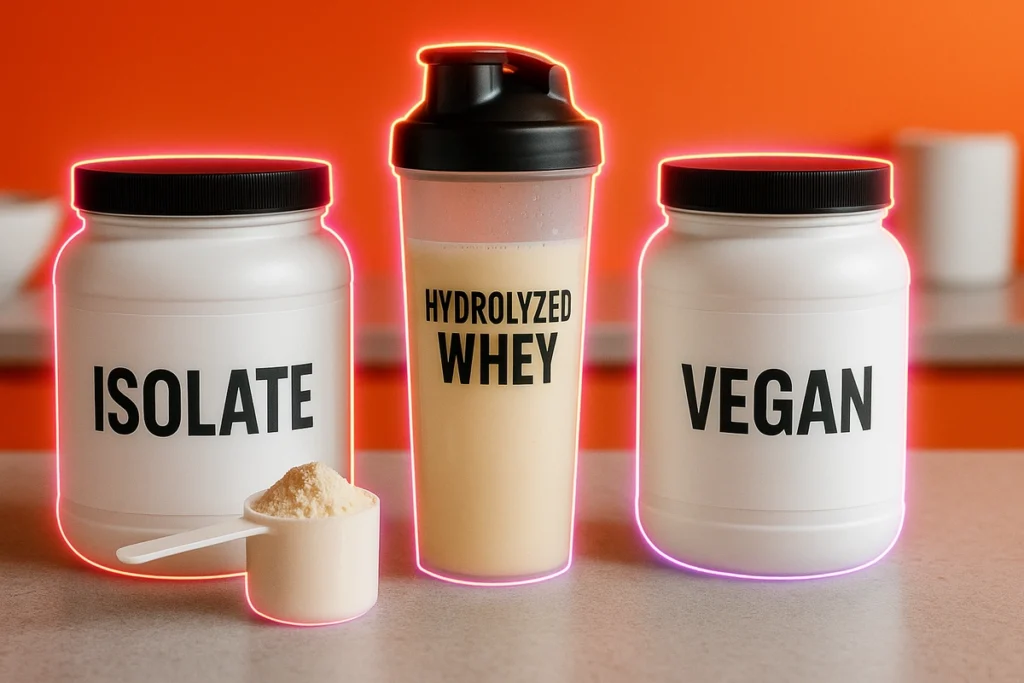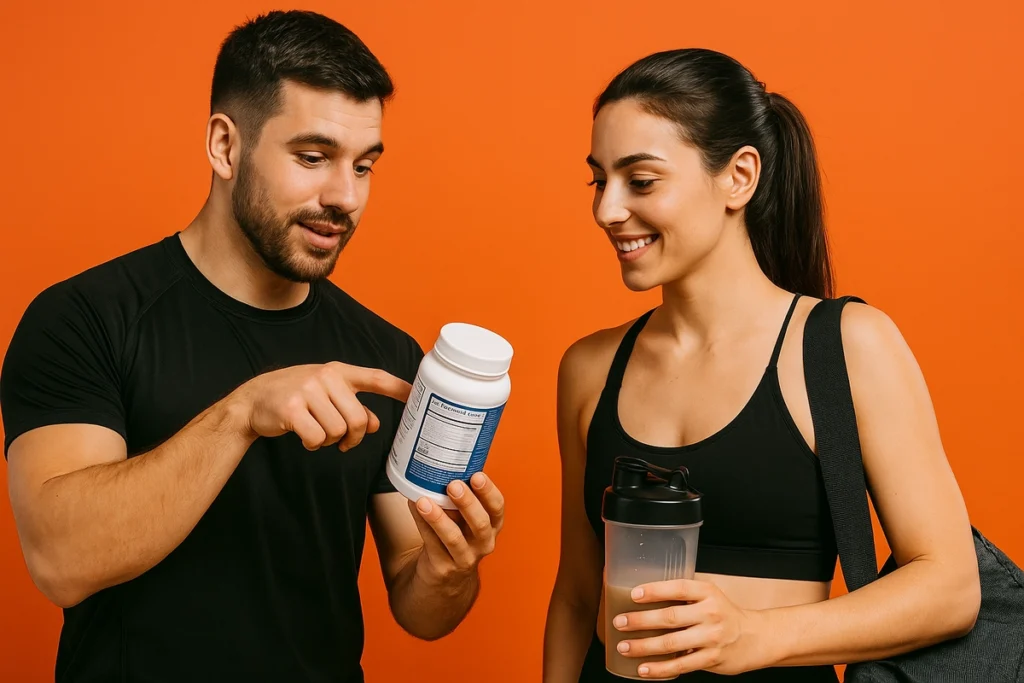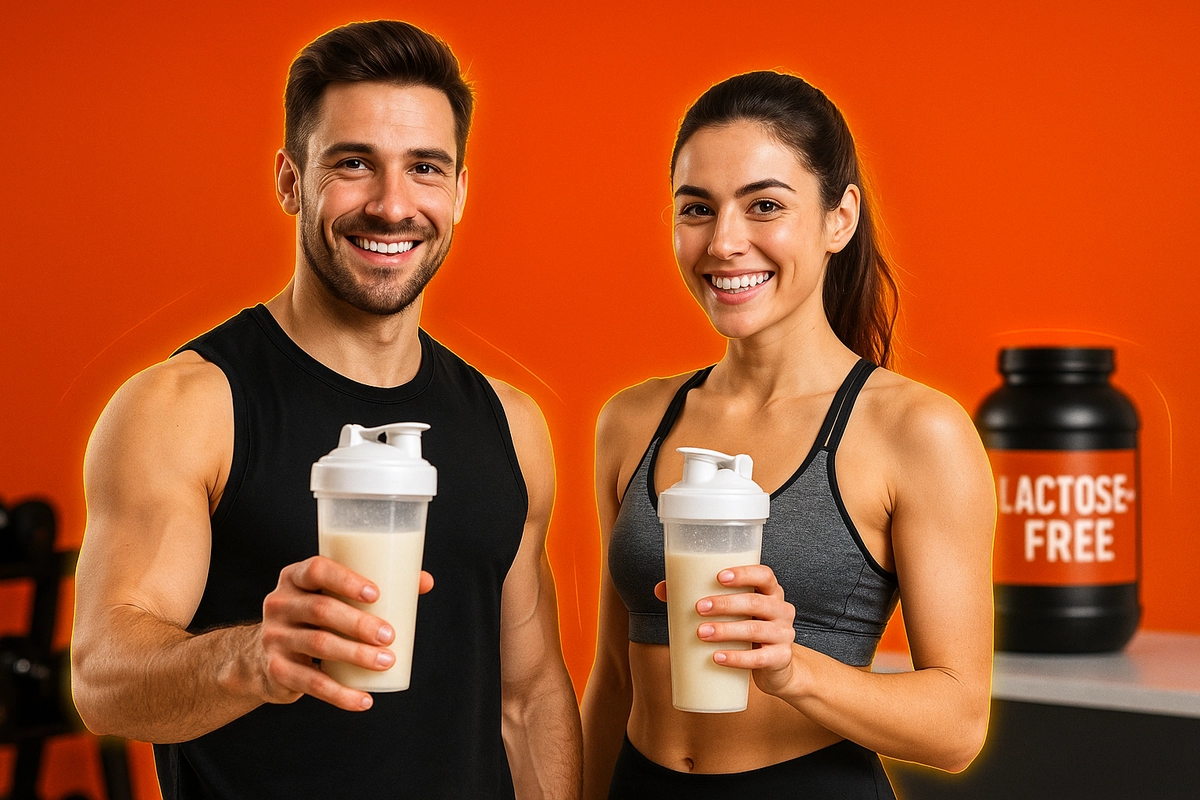Struggling with bloating or cramps after your protein shake? You’re not alone—and lactose could be the hidden problem behind it all.
If you’re tired of digestive issues messing with your workouts or recovery, it’s time to switch to a smarter, gut-friendly solution.
In this guide, I’ll walk you through the best lactose-free whey protein options—from personal experience as a coach and real-world client stories.
You’ll learn what works, what to avoid, and how to fuel your body without the bloat.
Table of contents
Quick Answer – What Whey Protein Is Lactose-Free?
If you struggle with bloating, cramps, or digestion issues after drinking your protein shake, you’re not alone. The culprit is often lactose.
The good news? Whey protein isolate and hydrolyzed whey are your best lactose-free options. They’re filtered or broken down in a way that removes almost all lactose.
And if even trace amounts bother you, vegan protein powders are a completely dairy-free alternative.
If you’re unsure which protein type to go with, you can also explore this Whey Isolate vs Concentrate comparison to understand the difference.
Why Go Lactose-Free?

Lactose intolerance isn’t rare. Many of my clients—even those who never had issues before—start noticing discomfort after using regular whey concentrate.
Symptoms like bloating, gas, cramping, and even fatigue post-shake are often red flags.
I’ve personally dealt with this. Years ago, I used to down whey concentrate post-workout. But after a few weeks, I kept feeling gassy and sluggish.
It wasn’t until I cut dairy for a week and switched to an isolate that I realized just how much it had been affecting me.
A lactose-free approach isn’t just about comfort—it helps you stick to your nutrition plan without those annoying side effects.
If you’re curious about how whey can fit into your diet, check out this guide on whey protein as a meal replacement.
Top Lactose-Free Whey Protein Options

Whey Protein Isolate
This is my go-to choice, both personally and professionally. It’s ultra-filtered and contains 90%+ protein by weight—with nearly zero lactose.
When I switched to Optimum Nutrition’s Whey Isolate, the difference was night and day. No bloating, no acid reflux. Just clean fuel post-workout.
One of my clients, Lucas, had serious bloating after using a whey blend. I got him on a pure isolate, and within 3 days, his digestion improved.
He even started pushing harder in his evening sessions because he felt lighter and more energized.
If you’re on a budget, there are still solid choices—see my list of affordable whey proteins in the U.S. for 2025.
Hydrolyzed Whey Protein
If isolate doesn’t cut it for you, hydrolyzed whey is the next step. It’s pre-digested—literally broken down into smaller peptides—which makes it incredibly easy to absorb.
Myprotein’s Hydrolyzed Whey worked wonders for Aminah, a client from Dubai. She used to feel cramps within an hour of drinking her shake.
After switching to hydrolyzed whey, she had no discomfort at all—and her recovery sped up, too.
This form of whey is perfect for pairing with creatine, as it’s rapidly absorbed. Learn more in this Whey + Creatine stacking guide.
Whey-Free Alternatives (Vegan Protein Powders)
Not technically whey, but still a lifesaver for highly sensitive stomachs.
Pea protein, rice protein, and EAA blends can give you a complete amino acid profile without any dairy.
I usually recommend these for clients who are strictly dairy-free or follow a plant-based lifestyle.
Taste and texture can vary, but brands are getting better. If you’re comparing amino options, here’s a helpful breakdown of EAAs vs BCAAs vs Protein.
How to Choose the Right Option

Here’s what I tell my clients:
- Read the label carefully. Avoid anything that says “whey blend” or “contains concentrate.”
- Look for 100% whey isolate or hydrolyzed whey.
- Check sugar content. Added sugars can worsen gut issues.
- Use digestive enzymes (like lactase) if you’re borderline intolerant.
Stefan, one of my clients from Germany, had mild symptoms that cleared up by combining isolate with a lactase supplement.
And don’t forget: what you mix it with matters.
I often pair my shake with water and a banana. Avoid milk—it defeats the purpose.
This advice is especially useful for women with lactose sensitivity. For more, read my guide on whey protein for female lifters.
Final Verdict – Which One Should You Pick?
If you want a reliable, stomach-friendly option, go for whey protein isolate. It’s widely available, well-tolerated, and keeps you on track with your goals.
If you have severe intolerance or want the cleanest absorption possible, hydrolyzed whey is the gold standard.
And if you’re ready to go completely dairy-free, a quality vegan blend can still get the job done.
Personally, I rotate between isolate and hydrolyzed whey, depending on how intense my training gets and how my body feels.
For men looking to maximize results with minimal digestive issues, here’s a list of top whey proteins for men in 2025.
FAQs About Lactose-Free Whey Protein
It’s very rare. If it does, it’s usually due to other ingredients in the product—not the protein itself. Learn more about its role in fat-burning here.
No. Lactose-free whey still comes from milk, while dairy-free proteins (like pea or rice) are plant-based.
Try switching to hydrolyzed whey or a vegan blend. And always track your symptoms—it helps identify hidden triggers.
Not when used properly. For a detailed breakdown, read my guide on whey protein and kidney side effects.
Check out this complete timing guide for weight gain to optimize your intake.
Final Tip from Coach Hossein:
Don’t push through discomfort. Protein is supposed to support your progress, not disrupt your digestion.
Listen to your body, invest in a clean product, and you’ll feel—and perform—way better.



Leave a Reply